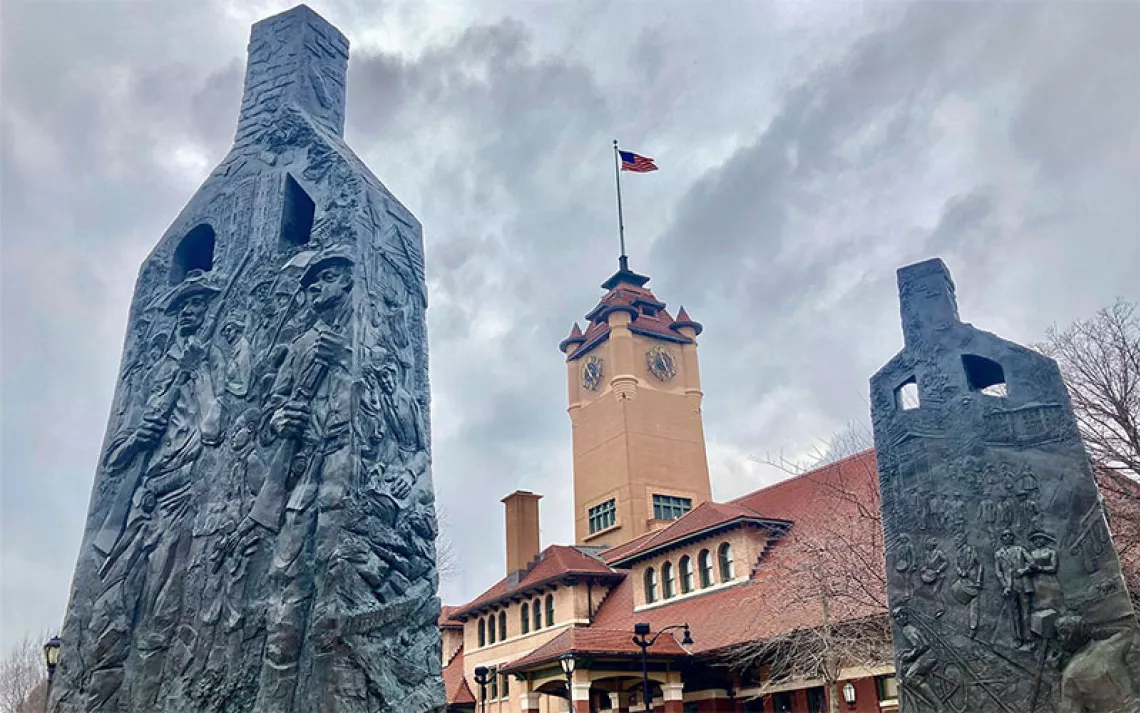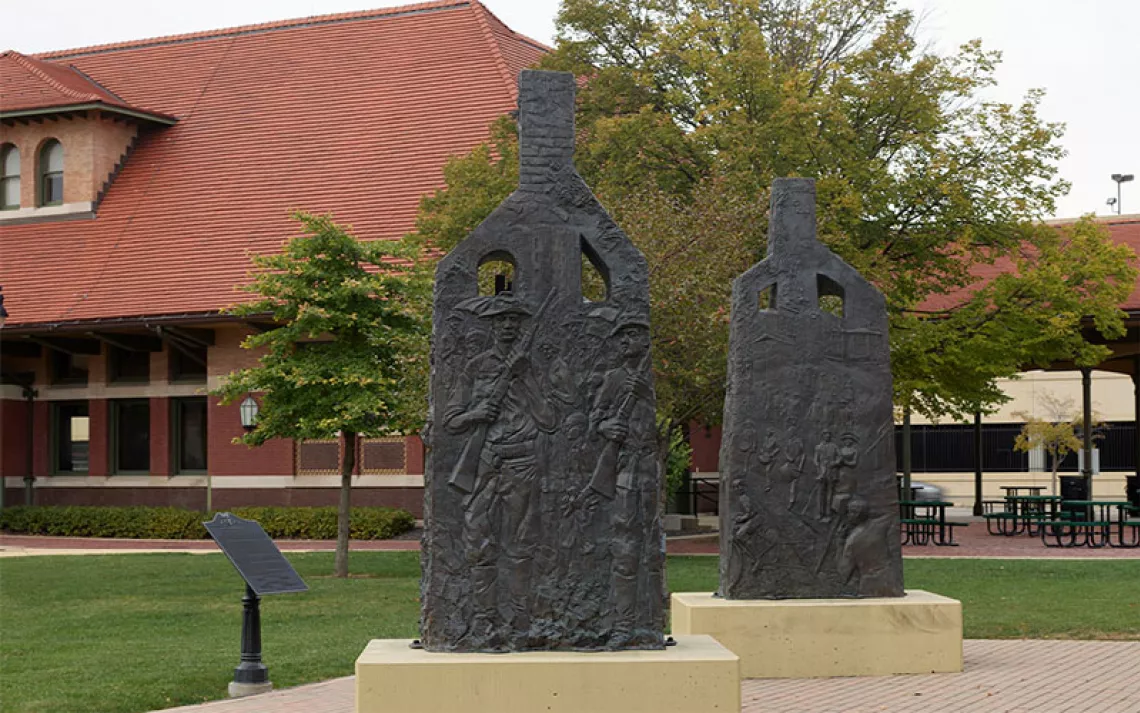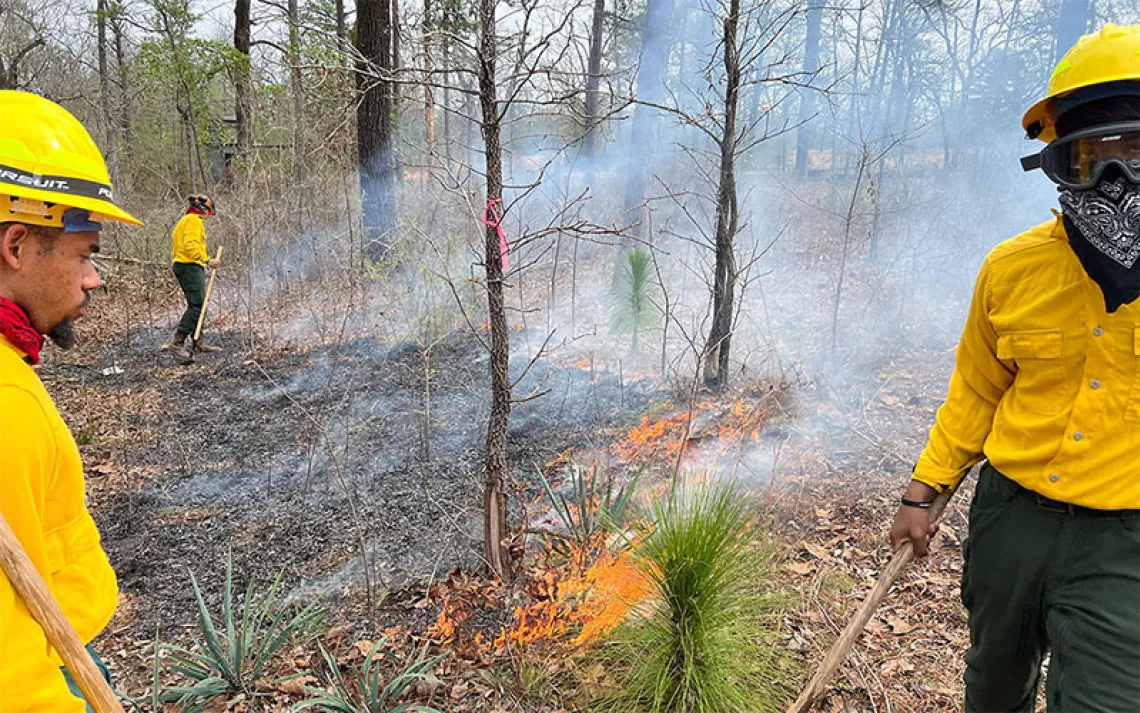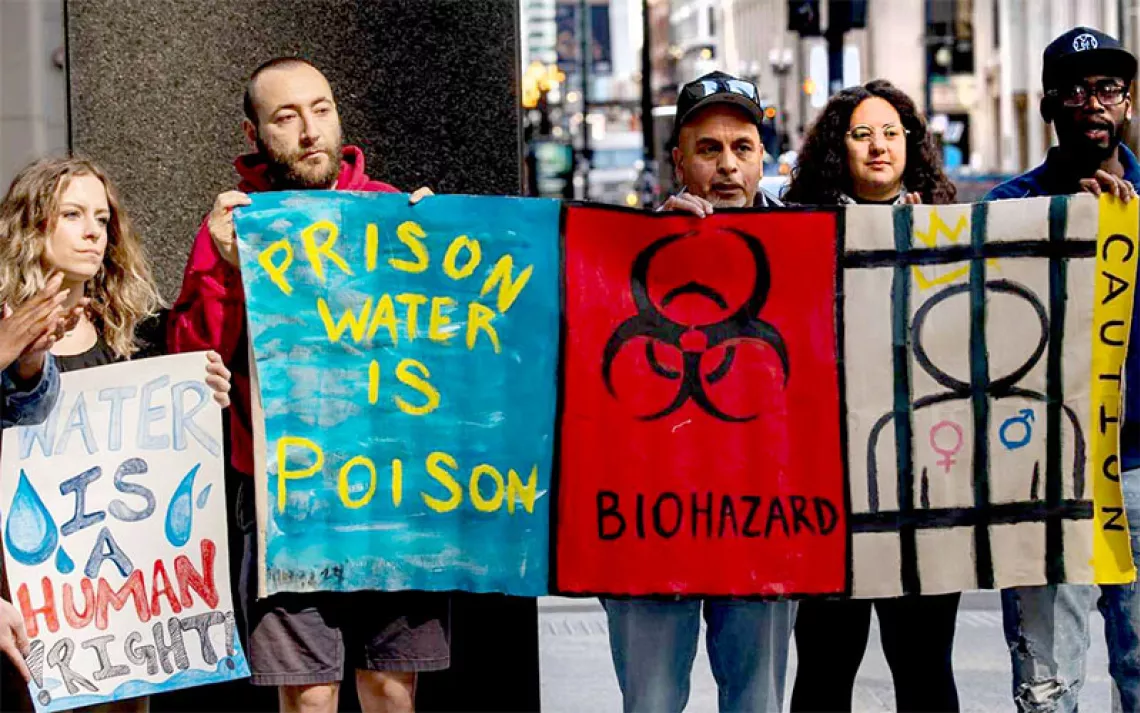Blacks in Green
"We can either all rise up or all go down together."
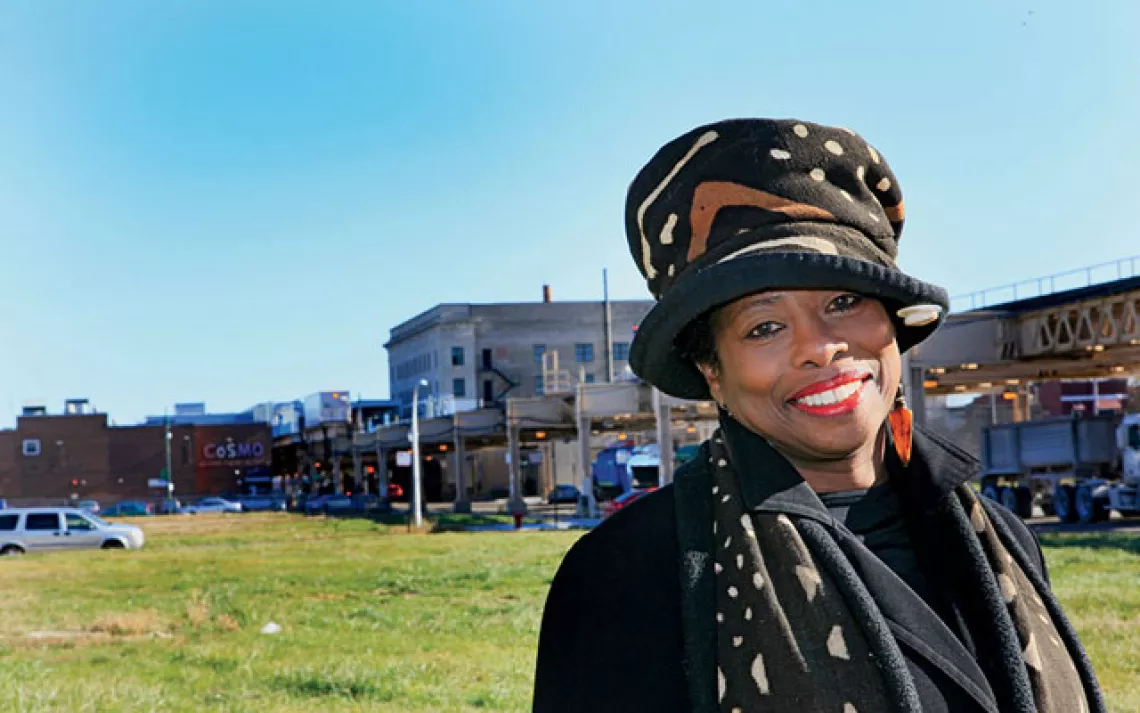
Naomi Davis, Chicago; president and founder, Blacks in Green | Photo by Beth Rooney
"MY GRANDPARENTS WERE SHARECROPPERS in Mississippi. Later, they lived in Memphis in a house next to the city dump, which might be why my grandmother's asthma got worse.
"After they died, Martin Luther King came to Memphis to support the sanitation workers and was assassinated. Thinking about all that helped me make the connection between civil rights and the environmental movement--how as a society, we just throw people away.
"My mother was a community activist. She fought hard to get African American history included in New York City's school curriculum. When that failed, she designed a class, which my brother and I attended along with other local kids.
"I launched Blacks in Green in 2007. We promote sustainable economic development in black communities, something I started thinking about back in the '70s. I had moved to Chicago for law school and was taking the train across town every day. I saw a horrific view of how certain demographic groups were living: broken windows, garbage piling up, rats everywhere. In the late '90s, I started looking for a solution.
"For Blacks in Green, creating green jobs means more than weatherizing a bunch of homes. It's about connecting African Americans to our cultural heritage and stewardship of the land.
"On 61st Street, near Chicago's DuSable Museum of African American History, we've proposed a cultural shopping destination that will display traditional crafts like dyeing and weaving. We're also working with the museum to create a heritage garden that will host classes and provide support for other community gardens.
"Environmental organizations need to focus on the needs of the people, or they will only be a small portion of the solution. We can either all rise up or all go down together."
 The Magazine of The Sierra Club
The Magazine of The Sierra Club
